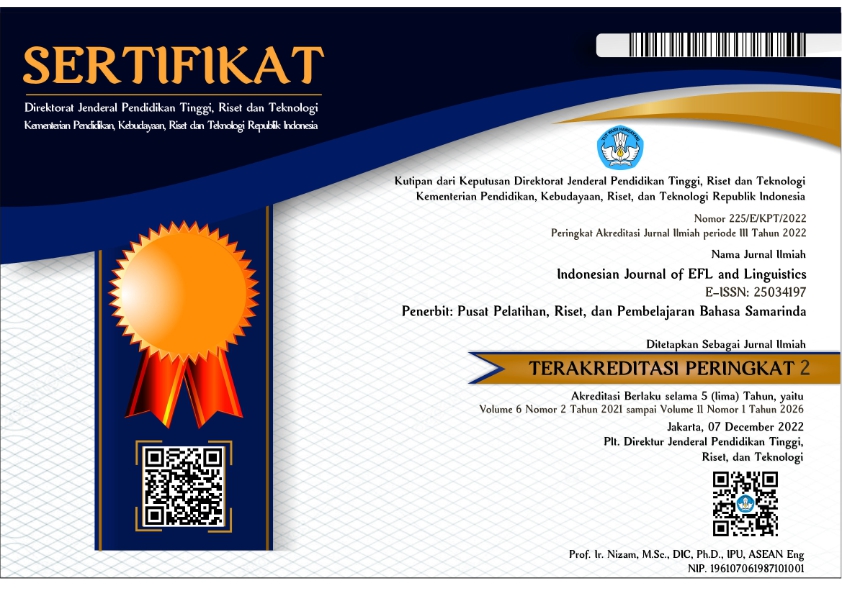Unveiling Speaking Challenges and Overcoming Strategies in Thesis Defense Examination: A Case Study of EFL Students at Universitas Jambi
Abstract
A thesis defense examination (TDE) involves the ability to defend the research and to orally explain the thesis. However, it is not easy to do them in front of the examiners. The purposes of this qualitative study are to identify the speaking challenges faced by English as a Foreign Language (EFL) students in their TDE and to describe the strategies they employed to deal with encountered challenges. To achieve the purposes, guided by an interview protocol, a semi-structured interview was conducted to elicit the experiences of five EFL students in their thesis defense. Through thematic analysis, we identified two main themes of EFL students’ speaking challenges in TDE, including internal challenges (low self-confidence, limited vocabulary and lack of pronunciation) and external challenges (serious examiners and unpredictable questions). In order to deal with the speaking challenges, the participants employed Self management strategies (taking a deep breath, mixing languages and looking at notes) and confirmation strategies (asking for clarification and asking for repeating questions).
Copyright (c) 2024 Indonesian Journal of EFL and Linguistics

This work is licensed under a Creative Commons Attribution-NonCommercial-ShareAlike 4.0 International License.




